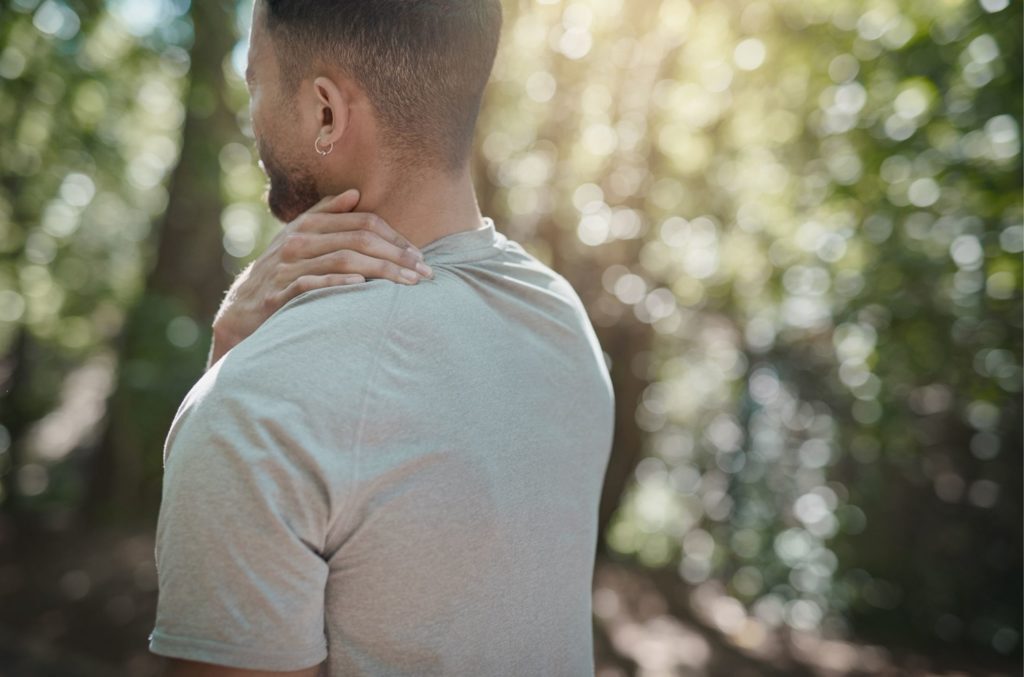Anxiety and stress can have a profound impact on your physical and emotional health. You may already know that too much stress can cause muscle tension and headaches. Plus, it can increase your risk of high blood pressure, heart attacks, and strokes.
But there are other ways anxiety impacts your body that aren’t mentioned quite as often. Wondering whether your symptoms could be attributed to the physical effects of anxiety on the body? Learn about 3 unexpected ways anxiety can impact you.
Anxiety and stress can have a profound impact on your physical and emotional health. You may already know that too much stress can cause muscle tension and headaches. Plus, it can increase your risk of high blood pressure, heart attacks, and strokes.
But there are other ways anxiety impacts your body that aren’t mentioned quite as often. Wondering whether your symptoms could be attributed to the physical effects of anxiety on the body? Learn about 3 unexpected ways anxiety can impact you.
How does anxiety impact your body?
Have you ever watched a nature show where a zebra flees from a ferocious predator like a lion? It’s not by chance that the zebra takes off running for its life in less than a second. The mammalian anatomy of zebras is primed to respond to threats that quickly.
And the way a human body responds to perceived threats is very similar. In fact, your body’s threat response system actually bypasses conscious thought. It’s an involuntary response that takes place in just fractions of a second.
How does it work? In an emergency, your brain triggers the release of hormones like cortisol and adrenaline, which elevate heart rate and prime muscles while simultaneously shutting down non-essential functions like reproduction, healing, and repair.
Like zebras, humans possess mammalian anatomy that responds rapidly to emergency situations. But unlike humans, zebras don’t get ulcers.
Why? Dr. Robert Sapolsky, a Stanford biologist who studies stress-related illness, explains why zebras don’t get ulcers. It’s because they only need to manage immediate physical stressors like predators but don’t experience chronic emotional or psychological stress the way humans do.
Why the negative impact?
The reality is that everyone experiences anxiety. Moreover, it’s a part of our wiring that’s evolutionarily intelligent. When you perceive a threat, your brain and body activate your stress response system, sometimes called a fight or flight response. Your body is doing its best to protect you from that perceived threat.
And when it’s working adaptively, anxiety goes away 20 – 30 minutes after the threat has gone away. But for those who have a clinical disorder, the anxiety persists even after the danger has passed.
This causes an issue: with ongoing or extreme anxiety, the body doesn’t get a chance to calm down and restore itself. And if it runs in your family, a genetic predisposition to anxiety or other mental health issues like depression don’t help.
When it’s activated frequently by modern-day stressors, the threat response system becomes overactive. This is one reason that anxiety ulcers and other stress-related illnesses occur. Zebras don’t seem to get them, but we humans sure do.
What does anxiety do to your body?
When you perceive a threat, your body has a standard physiological response. Like we said, your body and brain are adaptive, and the way they respond to stress is designed to protect you from harm.
The stress response has a discernable impact on your body just seconds after it’s been activated. Here are some common physical symptoms of anxiety.
- Rapid heartbeat
- Pounding heart
- Heart palpitations
- Rapid, shallow breathing
- Difficulty breathing
- Sweating
- Tightness or tension in muscles
- Shaking or trembling
- Weakness
Think of all the modern-day stressors. For instance, you might experience social anxiety because you’re in a difficult interaction with a group of people or because of an upcoming exam or job interview. When you experience stress around this kind of thing, your brain releases a cascade of chemicals that prepare you physically to face the oncoming threat.
These hormones have a powerful and immediate impact on your physiology, causing an increase in your heart rate and blood pressure, tightness in your chest, muscle tension, sweating, and rapid breathing.
While this is a helpful and adaptive response if you’re encountering a lion on the African plain, it’s probably not helpful when you’re interacting with new people or getting ready for a test or interview.
Learn how to combat anxiety with mindful breathing.
Can stress make you sick?
Yes, definitely. The long-term effects of anxiety on the body are real; they’re not just in your head. If your body habitually triggers a hormonal reaction to stress, it can cause harm to both your body and brain.
One of the most readily discernible impacts of stress on the body is muscle tension. If your muscles are chronically tense, you might experience tension headaches, migraines, and joint pain. These conditions, in turn, can trigger other stress-related issues with chronic pain.
Another stress reaction you’ve probably experienced has to do with your cardiovascular system. When you’re anxious, you may notice an increase in your heart rate, a heartbeat that pounds loudly in your chest, and even heart palpitations, where your heart seems to skip a beat.
Over time, long-term stress can increase your risk for cardiovascular disorders and events, like high blood pressure, heart attacks, and strokes.
For some, anxiety has a significant impact on breathing. You may experience anxiety physically as shortness of breath, difficulty breathing, or even breathing too much, as with hyperventilation. This can be especially dangerous if you have a pre-existing respiratory disorder.
Finally, chronic stress can impact your endocrine system. This system uses hormones to communicate different messages to the body by way of the circulatory system. Chronic activation of stress hormones can cause a feedback loop that leads to a continued increase in stress-causing hormones like cortisol and an overactive stress response system.
Try these relaxing exercises to ease physical tension.
Recognizing anxiety
People experience the physical impact of anxiety in different ways. For example, you might experience episodes of panic where you get overwhelmed by thought spirals, catastrophic thinking, trouble breathing, and feelings of shakiness.
In other cases, you might notice that under periods of high stress, you develop an ongoing constellation of anxiety side effects that includes issues like nausea or skin rashes.
But anxiety can also cause severe gastrointestinal cramping or chest pain so sharp that it lands you in the emergency room. The symptoms may be so severe that they look life-threatening. Plus, it can be difficult and confusing to understand what triggers them.
Often, these symptoms only serve to create more stress and worry. The worse you feel, the more stressed you become about the physical difficulties you’re experiencing. That, in turn, only makes them worse and can even cause new ones to emerge. Some people experience insomnia as a result of anxiety.
Whatever physical impact anxiety is having on your body, the symptoms can be debilitating and lead you to feel powerless and out of control. This can be especially true if medical tests and assessments are inconclusive.
If there doesn’t seem to be a straightforward reason you’re experiencing symptoms like the ones we listed, you can always ask your healthcare professional whether stress or anxiety might be playing a part.
Discover how to treat both anxiety and depression at the same time.
The unexpected impact of anxiety
Anxiety can have consequences for almost all parts of the human body. We just learned that it could impact your musculoskeletal, respiratory, cardiovascular, and endocrine systems. But there are a few places we don’t usually think about when it comes to anxiety’s impact on the body.
Skin
We typically don’t think of our skin as an organ, but it’s actually the human body’s largest organ system. And there’s a single system that takes care of your skin, hair, nails, and the exocrine glands that regulate and protect your body from UV light, toxins, allergens, infections, and extreme temperatures. This network is called the integumentary system.
This complex organ system is sensitive to imbalances such as cortisol spikes and the bodily inflammation you may experience when you’re under stress.
Pay attention to the ways your skin tells you that your anxiety or stress is not being managed well. This can range from blushing and mild rashes or itching to acne, canker sores, eczema, psoriasis, and rosacea.
Some people also have behavioral responses to anxiety that can impact skin, hair, and nails. These behavioral responses, including skin picking, hair pulling, and nail-biting, are known as body-focused repetitive disorders (BFRBs).
Hair
Severe physical or emotional stress can lead to unusual hair loss or even premature graying. The stress hormones released when your body is preparing to face a threat can impact pigment cells, cause hair to thin, and make hair fall out in patches.
No need to panic—hair growth will return to normal when you lower your stress level. One common disorder called telogen effluvium can cause you to lose hair temporarily following a stressful experience and can happen after giving birth, having surgery, or when you’re seriously ill.
Another stress-related condition called alopecia areata can also cause hair to fall out. This autoimmune disorder leads to hair loss on the head, face, and body. That being said, your hair follicles remain alive even after the hair falls out, which means that hair usually regrows when you treat the disorder.
Digestive system
There is a powerful bi-directional connection between the brain and the digestive system. The digestive, or enteric nerve, system is sometimes referred to as the “second brain” of the body. Emotions and gut health are closely aligned.
This is why your anxious thoughts can feel like butterflies in the stomach, sometimes making you feel a little nauseous. It’s also why irritable bowel syndrome (IBS) can lead to low mood. Some people even notice digestive disturbances before they become conscious of how high their anxiety levels are.
Often those who have these unexpected physical symptoms of anxiety feel embarrassed by or worried about them on top of their already high stress levels.
Hopefully, this information helps you understand your body’s physiological logic and eases any embarrassment or self-blame. There are many options when it comes to reducing stress and decreasing anxiety.
With appropriate medical guidance and anxiety treatment, most people can manage anxiety very effectively. Visit Lemonaid to talk with a medical professional about the right anxiety treatment for you.
Takeaway
- Anxiety has an immediate physiological impact on your body.
- Over time, the effects of the stress response can cause harm to your body and brain.
- Anxiety affects most of your body’s major systems, including your skin, hair, and digestive system.












